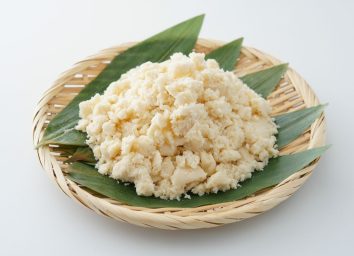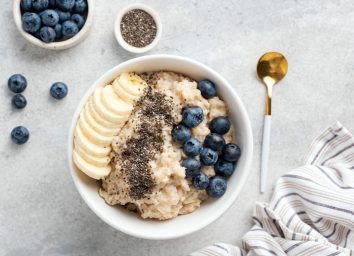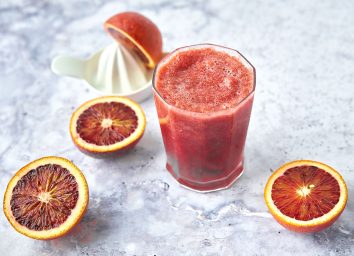5 Effortless Ways to Lower Cholesterol, Say Dietitians

Knowing that you have high cholesterol can be an overwhelming and scary place to be because you are constantly aware of the risks involved and the changes that you need to make. Fortunately, experts believe that it's the small, dedicated changes that add up over time and make all the difference in lowering your cholesterol.
"It's not about adding or subtracting egg yolks, which is probably the most misconceived piece of information you've heard as it relates to lowering cholesterol, but rather it's about focusing on adopting a more quality diet so that with time, it just becomes the way you live and doesn't require constant effort," says medical expert Laura Burak, MS, RD, author of Slimdown with Smoothies, and founder of Laura Burak Nutrition.
To learn more about making these dietary changes, we talked with Burak and another medical expert Lauren Manaker, MS, RDN, author of The First Time Mom's Pregnancy Cookbook and Fueling Male Fertility, about their advice for the best habits you can adopt to lower your cholesterol.
Here's what they had to say, and for more healthy heart tips, check out The Best Foods That Can Help Lower Your Risk of Heart Disease.
Eat whole foods.
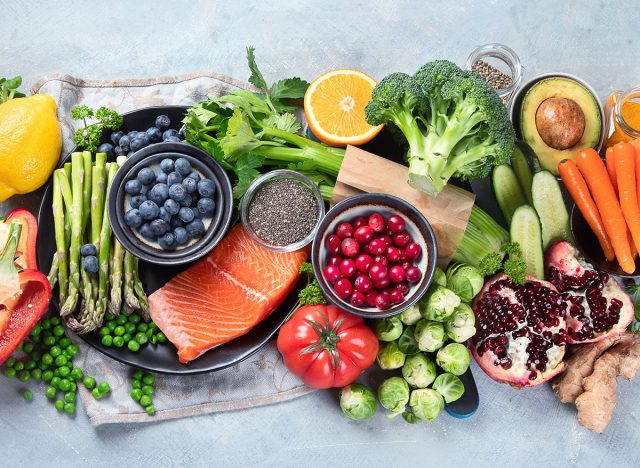
Yes, there are certain foods that someone with high cholesterol may want to avoid or limit, but our dietitians want readers to know that adding healthy, whole foods to your daily diet can help your cholesterol levels and overall health significantly.
"Center the foundation of your diet around nutritious whole foods like fruits and vegetables, and heart-healthy fats like nuts, seeds, avocado, olive oil, and fatty fish like salmon, which are shown to help improve your blood lipids," says Burak.
Add oats.
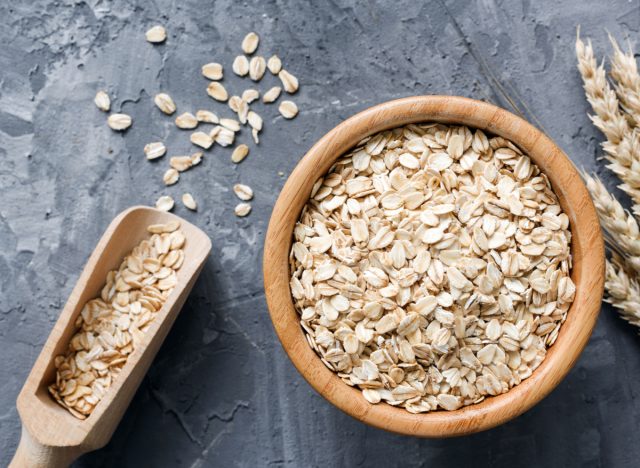
Oats are known for their long list of health benefits, helping with practically everything under the sun like improving your gut health, helping you manage your weight, improving insulin resistance, and helping to lower cholesterol.
"Oats contain a fiber called beta-glucan, which essentially helps remove cholesterol from the body," says Manaker. "While adding oats to your breakfast is an obvious dish, these whole grains can be added to a slew of other dishes (even meatloaf!) to help give your diet a beta-glucan boost."
Avoid processed foods and added sugar.

Eating plenty of whole foods on a regular basis is one of the keys to lowering cholesterol. According to Burak, staying away from added sugar and processed foods can do wonders for your heart health as well.
"Contrary to what you may believe regarding cholesterol in the past, the abundance of added sugar in our modern diet is a main contributor to higher cholesterol and heart disease, not previously demonized foods like eggs and dairy," says Burak. "It is most important to limit your intake of processed foods and added sugar like candy and cookies."
Snack on some watermelon.
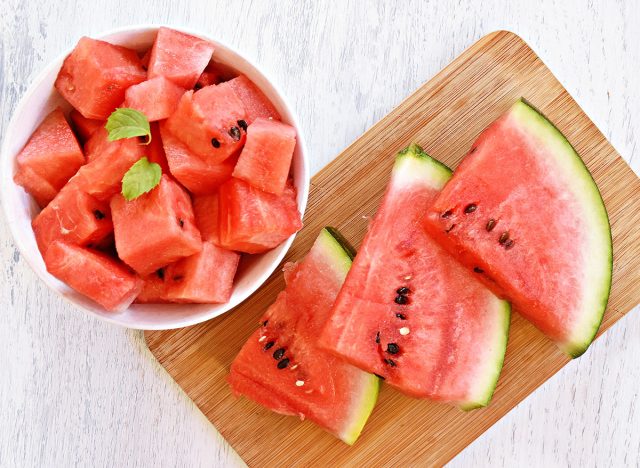
Watermelon is a surprisingly powerful fruit, especially when it comes to your heart health. And thankfully, this good news comes right in time for plenty of summer picnics and barbecues.
"Watermelon is a natural source of lycopene, a carotenoid that, when taken daily in certain doses, may reduce LDL cholesterol levels," says Maanker. "According to results from a clinical trial published in Current Developments in Nutrition, eating watermelon is linked to reduced LDL cholesterol and improved HDL cholesterol. Watermelon makes for a convenient addition to many dishes and is a classic hydrating snack that is loved by many. Plus, the entire watermelon is edible (including the rind!), which makes it a sustainable food choice too."
Enjoy berries for dessert.
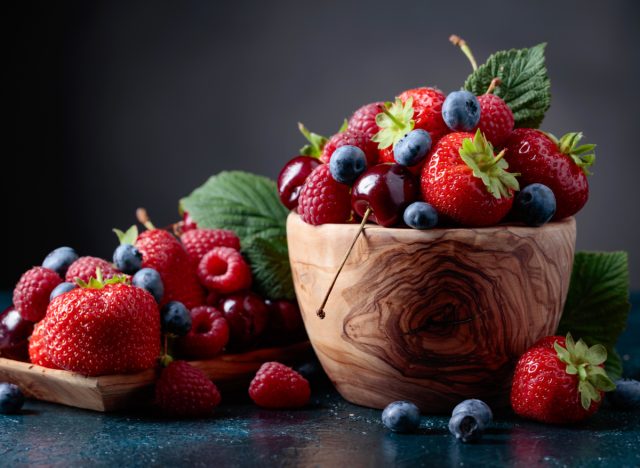
Along with watermelon, berries have also been found to help improve your overall health, and specifically the health of your heart.
"Berries are a naturally sweet food with no added sugars and are jam-packed with good-for-you nutrients that support heart health," says Manaker. "Data from a meta-analysis showed that berry consumption significantly reduced the levels of LDL cholesterol, making them an obvious choice in lowering cholesterol."
Don't have any fresh berries where you live? Manaker says "frozen options can be just as nutritious as fresh options, and in many cases, can be much more economical, too."

